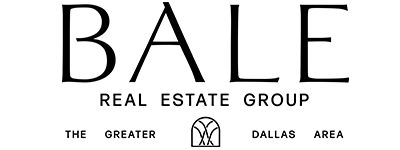 The option period is one of the most critical phases in the home-buying process. This is the time when buyers can perform due diligence on the property, often starting with a home inspection. While it may seem straightforward, navigating this stage can present several challenges. Understanding these obstacles and how to overcome them can be the difference between a successful transaction and a stressful ordeal. Here’s what you need to know:
The option period is one of the most critical phases in the home-buying process. This is the time when buyers can perform due diligence on the property, often starting with a home inspection. While it may seem straightforward, navigating this stage can present several challenges. Understanding these obstacles and how to overcome them can be the difference between a successful transaction and a stressful ordeal. Here’s what you need to know:
1. Time Constraints
- Challenge: The option period is typically short—often between 5 to 10 days. This window can feel like a race against the clock when you’re coordinating schedules with inspectors, reviewing reports, and making decisions.
- Solution: Schedule your home inspection as early in the option period as possible. This gives you more time to digest the findings, gather additional opinions if needed, and negotiate repairs or credits with the seller.
2. Unexpected Findings
- Challenge: Inspections often uncover issues not visible during a typical showing. This could range from minor repairs to significant problems, like foundation issues, plumbing leaks, or outdated electrical systems.
- Solution: Remain calm and approach the inspection report with a clear head. Work with your realtor to prioritize which items need to be addressed. Some repairs may be non-negotiable, while others can be managed through repair credits or seller concessions.
3. Cost of Repairs
- Challenge: Major issues can come with high repair costs, which may affect your budget or overall willingness to move forward with the home purchase.
- Solution: Leverage the inspection findings during negotiations. Depending on the severity, you may be able to ask the seller for repairs, reduce the sale price, or request credits to address the issues yourself after closing.
4. Negotiation Frustrations
- Challenge: Not all sellers are willing to negotiate on repairs. They may push back, offer minimal concessions, or refuse altogether.
- Solution: Understand your non-negotiables and be prepared to walk away if necessary. While it can be disappointing, buying a home with unresolved issues can be costly and stressful long-term. Your realtor can help guide you through effective negotiation strategies.
5. Specialized Inspections May Be Needed
- Challenge: A general inspection might reveal issues that require specialized inspections (e.g., mold, asbestos, structural concerns). This can delay decision-making during the option period.
- Solution: Be prepared for this possibility and act quickly. Engage specialists as soon as the need arises. While it may cost more upfront, thorough due diligence ensures you make an informed decision.
6. Emotional Stress
- Challenge: Inspections can be emotionally taxing. Concerns about hidden issues or fear of losing your dream home may surface, adding stress to an already tense process.
- Solution: Keep your emotions in check by focusing on the facts. Remember that an inspection is an opportunity to learn about the home’s true condition and potentially save yourself from costly surprises. Lean on your realtor for advice and reassurance.
Final Thoughts
The home inspection process during the option period doesn’t have to be overwhelming. With preparation, a proactive approach, and expert guidance from your realtor, you can navigate these challenges successfully. This stage is about protecting your investment and ensuring you’re making an informed decision. Don’t shy away from difficult conversations and remain open to solutions—this will help you emerge confident in your purchase decision.
For more information or to discuss your buying journey, contact the Bale Real Estate Group. We’re here to ensure every step of your transaction is as smooth as possible! Visit our website at https://balerealestategroup.com/

